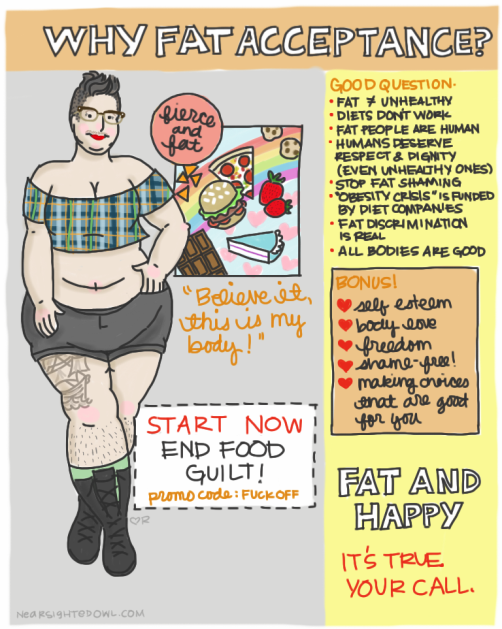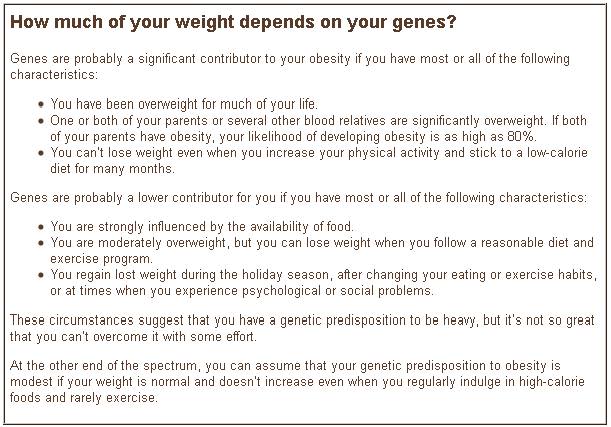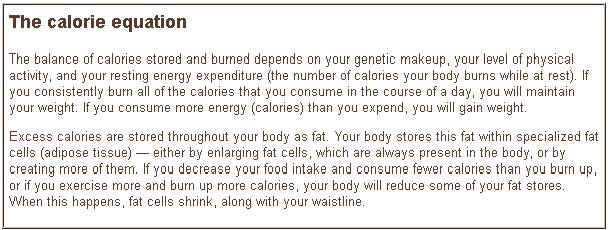What’s so Wrong with Fat Shaming?

There’s something wrong with shaming, in general. I’m going to make the assumption that everyone is in agreement that intentionally embarrassing another person because of certain characteristics, may it be because of their weight, illness, lack of intelligence, timidity, virginity or poverty, is unethical. There are genetic predispositions that determine what weight we’ll end up with. However, not all people who are fat have “no choice” in the matter. For example, me.
I’m fat. According to my BMI, I’m Obese Class I. I’m fat because I eat too much, I drink a lot of beer and I don’t exercise. My favorite food is Crispy Pata. I eat lamb steak at least once a week and whenever I rice-all-I-can at Mang Inasal or Chick-Boy, I devour no less than 4 cups of chicken-oil-drenched rice.
Maybe I’m fat because I’m genetically predisposed to be chubby. But I also eat too much. And If I’m going to be completely honest with myself, I know that I should improve my eating habits and include more physical activities as part of my lifestyle. I know that there are things I can do and steps I can take to reduce my fatness. I just don’t want to do them. Mostly because I’m lazy. Sometimes, my friends would be working out in our living room and I’ll be sitting on the couch, watching them, while eating vanilla pudding.
However, even though I’m doing nothing to improve my weight, it is not right to shame me for being fat.
What is “Fat Acceptance”?

Fat Acceptance introduces the idea that being heavy does not necessarily mean that one is unhealthy. The stigma and bias against fat people are propagated by shaming culture. Fat Acceptance is a movement that seeks to dissociate being fat from the usual misconceptions: unhealthy, lazy, eats too much. It’s also a “body positivity” movement that encourages people to feel good about their bodies, whatever their bodies look like. It wants society to have a more positive attitude towards high-calorie diets and consider it a defensible lifestyle. It also wants to expand the popular aesthetic to include fat as beautiful.
According to the Fat Acceptance movement, I have a right to be fat. I don’t have to explain myself to anyone. Just because I’m slightly overweight, doesn’t mean that I’m unhealthy. Also, some people who have“skinny-genes” eat more than I do, but never gain weight. That’s the case for a lot of fat people; their weight is a direct result of their genetics.
However, I’m about to make a personal statement that does not reflect the views and opinions of this organization: I don’t agree with Fat Acceptance. Just because I shouldn’t be fat-shamed, doesn’t mean that there is nothing wrong with me being fat.
I understand that I’m using a very subjective term here: “fat.” The scientific term for people who are technically, scientifically, medically overweight is “obese.” But when people use the term “fat” they could be referring to someone “chubby” or someone “morbidly obese.”
Fat Acceptance is a dangerous umbrella term that could delude unhealthy, obese people that they’re fine. That’s my first problem with Fat Acceptance. It never differentiated between “healthy fat” and “life-threatening fat.” I can’t support a movement that does not discriminate between a person who is “genetically predisposed to chubbiness” and a person who is “eating himself to death.”
But My Fat is in the Genes!
Is your fat caused by your genes? Not entirely. Weight is not entirely genetic. Although there are genetic factors that influence weight, genetics does not determine everything. In fact, if you are a fat person like me, you can check this chart made at Harvard Health Publications to examine how much of your weight depends on your genes.
According to the chart:

By the way, intelligence is also a consequence of genetics. But if my intelligence genes were inferior, I think I should be encouraged to study harder, not fed excuses why it’s okay for me to be stupid. Dumb-shaming is also wrong, but if there was a Dumb Acceptance movement, I probably would not support it either.
If my body looks fat, because of my neglect, because I chose not to eat properly and not to exercise, I should not feel positive about it. However, the Fat Acceptance movement promotes an idea that one can be “healthy at any size.” That’s simply not true. You can’t be healthy at any size.
Fat Acceptance Distributes False Information
The main source for the notion that one can be healthy at any size is a study done by Centers for Disease Control (CDC) epidemiologist Katharine Flegal. It is one of the most quoted studies by Fat Acceptance advocates. It claims that, “slightly overweight people have lower all-cause mortality than normal weight and underweight people.” However, it’s found to be erroneous.
There are serious methodological flaws in the research she conducted. The errors of Flegal’s methodology were pointed out in the article, “Weight and Mortality” by Jake Miller of the Harvard School of Public Health. Jake Miller writes, “The panelists evaluated Flegal’s findings and pointed out a number of methodological errors in the study that they said resulted in the artificial appearance of a protective benefit in being overweight or mildly obese.”
In other words, the result of the research is the product of a mistake. It turns out the methodology of the prior study included skinny people who were already dying of cancer, AIDS, and old age in the calculations.
Miller writes, “These people weren’t dying because they were slim; they were slim because they were dying.”
Now, even if the correction above wasn’t made, saying that “one could be healthy at any size,” would still be irresponsible. Here is what the actual graph of Flegal’s study would look like:

There are exemptions that should be mentioned with regard to BMI-based data. There are always exemptions. Athletes and body builders often fall into the category of overweight because of their muscle mass. But these cases are not part of the overwhelming majority.
On average, it is still clear that the more obese a person becomes, the higher his risk of death is.
Fat Acceptance Advocates Extending the Definition of Fat-Shamers to Doctors Who Encourage them to Lose Weight
If a doctor tells an obese person to diet, exercise and lose weight because they “are” obese, it is not fat-shaming. He’s doing his job. He’s not making a judgment based on your looks. He’s making an honest evaluation of your health status. Some Fat Acceptance advocates push the notion of fat-shaming too far.
In the article, “Your Doctor is Probably Not Fat-Shaming You,” Hamilton Nolan writes about a blogger who threatened to replace her doctor for encouraging her to lose weight.
Although people are free to be “offended” by whatever they want, but it’s not your doctor’s job to “not offend you.” It’s your doctor’s job to tell you the bad news. It’s his job to tell you that you have an erectile dysfunction, that you are dying, or that you are fat.
Nolan writes, “If you meet someone at a party, it is not appropriate to remark upon their weight. If you meet someone at the gym, it is not appropriate to remark upon their weight. As a matter of fact, the inside of a doctor’s office is one of the only places in the entire world where it is appropriate to remark upon someone’s weight. We go to our doctors for the hard medical truth.”
People Become Fat Because of Food

Okay. I’m fat because I overeat. Some people who are fat don’t overeat. But some people who are fat, are fat because they overeat, and it’s hard for them to stop, because food is addicting. Cocaine, one article suggests, is actually less addicting than fatty food. But I don’t need a scientist to explain to me why I’m fat.
I’m fat because the Shakey’s delivery service is my second mosy dialed number on the landline, second only to the laundry service. People become fat because of food.
However,“eating less” is not as simple as it sounds, especially for fat people. Food addiction is a legitimate medical disorder. I don’t consider myself a food addict, but when I’m at a Japanese buffet, I keep eating until I hate myself. If I’m offered leftover Shakey’s pizza when I get home from that buffet dinner, I will eat that too.
An article called, “Is Obesity an Addiction?” was written in Scientific American. In this article, it was discussed how overeating can short-circuit the brain. Paul Kenny writes, “An inability to suppress a behavior, despite the negative consequences, is common in addiction. Scientists are finding similar compulsiveness in certain people. Almost all obese individuals say they want to consume less, yet they continue to overeat even though they know that doing so can have shockingly negative health or social consequences.”
Overeating overstimulates our brain’s reward system and it impedes a person’s ability to stop eating. Similar to alcoholics and drug addicts, the more food an over-eater eats to feel sated, the more food he or she will require to get the same “high.” As another article from the same site suggests, “Overeating May Alter the Brain as Much as Hard Drugs.”
This is another reason why I’m not a fan of Fat Acceptance. It overlooks the fact that some people are fat because they have an addiction that is very hard to recover from. Instead of pointing out the fact that fat people may be addicted to food, they are given permission, by being told that a high-fat, high-calorie diet that is ruining your body in many ways is “a defensible lifestyle” and that society is wrong for thinking that there is something wrong with it.
Do Not Shame Fat People
Now, if there’s one person who should be fat shamed, it’s me. I eat too much, drink too much, and don’t exercise at all. However, fat shaming serves absolutely no purpose. For some, the intention behind shaming is to encourage reform. But the only thing shaming will accomplish is make me feel ugly and make me hate myself. In fact, just thinking about it makes me want to eat a Happy Meal out of spite.
I’m fat and it’s my fault, and I should do something about it. Most fat people who can do something about their weight already know that, and shaming them isn’t really going to help them. In the same way that calling someone stupid won’t motivate a person to learn, calling someone fat won’t magically motivate a person to lose weight. As much as I don’t want fat people to be shamed, I don’t think the Fat Acceptance Movement helps anyone.
It’s Easier to Rationalize Obesity than to Prevent It
The Fat Acceptance movement is wrong because it encourages people to keep their unhealthy lifestyles. The Fat Acceptance movement does not distinguish between people like me, people who can do something about their weight, and those who are completely helpless about their situation.
I think fat shaming is wrong, I think fat discrimination is wrong, I think people who are fat should not be made to feel any worse than they already do, but I also think that people should not be encouraged to be fat, especially if there is something these people can do to achieve a healthier weight.
Obesity is a real problem.
According to this article, “Obesity Now Outweighs Hunger Worldwide.” In other words, the entire world is fat. Telling people that it’s okay to be fat is not a rational response to a fat world.
I would like to end this article with one of my favorite music videos by Fat Boy Slim: “Right Here, Right Now.” It’s awesome, it’s relevant to the topic and it has evolution. If you’ve never seen it, go watch it!
Sources:
Gayle, D. (2013, March). “Thank your parents if you’re smart: Up to 40% of a child’s intelligence is inherited, researchers claim.” Retrieved on: June 5, 2014. From: http://www.dailymail.co.uk/sciencetech/article-2293861/Thank-parents-youre-smart-Up-40-childs-intelligence-inherited-researchers-claim.html
Harmon, K. (2010, March). “Addicted to Fat: Overeating May Alter the Brain as Much as Hard Drugs.” Retrieved on: June 5, 2014. From: http://www.scientificamerican.com/article/addicted-to-fat-eating/
Harvard Health Publications. “Why People Become Overweight.” Retrieved on: June 5, 2014. From: http://www.health.harvard.edu/newsweek/Why-people-become-overweight.htm
Kenny, P. (2013, August). “Is Obesity an Addiction?” Retrieved on: June 5, 2014. From: http://www.scientificamerican.com/article/is-obesity-an-addiction/
Miller, J. (2013, February). “Weight and mortality.” Retrieved on: June 5, 2014. From: http://news.harvard.edu/gazette/story/2013/02/weight-and-mortality/
Mirsky, S. (2007, August). “The World Is Fat: Obesity Now Outweighs Hunger WorldWide.” Retrieved on: June 5, 2014. From: http://www.scientificamerican.com/podcast/episode/8dff8662-e7f2-99df-38e67664abff1d05/
Nolan, H. (2013, March). “Your Doctor Is Probably Not Fat-Shaming You.” .” Retrieved on: June 5, 2014. From: http://gawker.com/your-doctor-is-probably-not-fat-shaming-you-1535358667″
Shriver, L. (2009, December). “Lionel Shriver: My brother is eating himself to death.” Retrieved on: June 5, 2014. From: http://www.theguardian.com/lifeandstyle/2009/dec/01/lionel-shriver-my-obese-brother
Image Sources:


Fantastic insight. I was fat-shamed at a buffet a few nights ago. I’m even more ashamed that I didn’t handle it like the strong, independent woman that I am. I wrote about it on my blog, and the kind responses people have been giving me are incredible. I guess it really struck a nerve.
Being fat myself – and finally doing something about after my doctor told me to because of enormous health risks – there is one thing that is true about being too fat – that means outside the normal range, because there are people who are naturally a bit fatter and a bit slimmer – is a sign of lacking willpower and/or discipline. Just like people who are too slim tend to be a bit too controlled and controlling, not really able to have fun – I know, I prefer women with a bit of fat, not too fat, because they know how to enjoy sex hehe. Of course there are hormonal disorders that cause too fat or too thin, but it does say something about the person.
Awww. I’ve been overweight since forever. Genes!!! Whyyy :-/ All of the members of my family can’t seem to help but point out how fat I am and becoming. I love to eat! Gah. But I think right now, the line between being excessively, unhealthily fat, and being on the “safe” side is hmm clear. Meaning, I am obese right now… but besides the genes, I know that it’s because of my lack of discipline. I even used my knee injury as an alibi before… but really, I was just lazy.
Now, my tito’s really pushing me to lose weight. It’s sweet, he’s the only one who’s ever so hmm real pushy. Lol. Sad thing is he’s about to leave. I think it’ll help if the people around me would “really” help me too. Like actually do stuff with me and not just nag me and all.
Just sharing. I have few fat friends whom I can share my sentiments with. Hahahahahahaha
FAT = UNHEALHY, i was fucking 250lbs and i had tons of diseases because of that !!!!!!!! NOW IM HAPPY 120 lbs and im totally healthy just because i lost this awful weight !!!!! no single disease now !